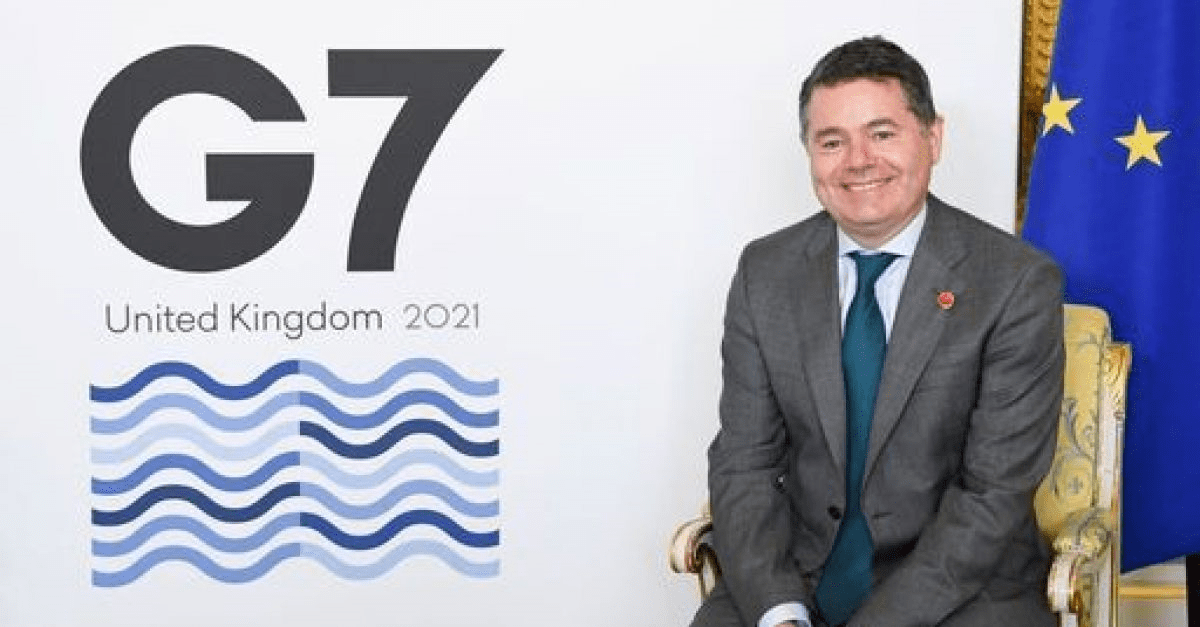
Why Skills-First Leadership Is Replacing the Ivy League Playbook in the C-Suite
The old prestige pyramid—where Ivy League degrees and blue-chip consulting backgrounds paved the way to the CEO seat—is cracking.

June 21, 2021: -On Friday, Ireland, the European home of tech giants such as Apple and Google, wants to reach a compromise over global taxation that recognizes “the role of legitimate tax competition,” the finance minister of the country told CNBC.
Ireland is famous for offering a lower corporate tax rate, 12.5%, and a current agreement among the seven highly advanced economies potentially challenges it.
The G-7 finance ministers agreed that there should be a minimum global corporate tax rate of around 15%, as suggested by the Biden administration. In addition, they try to resolve calls for a fairer tax system.
“What we are going to do is engage in the OECD process intensely across the next weeks and coming months and I hope an agreement can be reached that recognizes the role of legitimate tax competition for smaller and medium-sized economies,” Paschal Donohoe, the finance minister of Irish told CNBC.
The G-7 plan is being discussed at the OECD level and discussed with the G-20 leaders. The idea is to get as many countries as possible to back the proposal made by the G-7, so there is a higher chance of it being implemented.
“We still have some time to go before a final agreement is reached, and so it is difficult for me to say what that compromise could yet look like. But I do believe it is in the interest of everybody to find a compromise,” Donohoe told CNBC’s Annette Weisbach in Luxembourg.
The European Commission in 2016 ruled that Apple had received illegal tax benefits in Ireland and ordered Dublin to recoup 13 billion euros ($15.49 billion) from the tech giant. Both Ireland and Apple contested the decision, and Europe’s highest court is now assessing the case.
Taxation has become necessary in the wake of the pandemic, given that many countries are desperate for new or more vital sources of income so they can repay the debt incurred during the crisis.

The old prestige pyramid—where Ivy League degrees and blue-chip consulting backgrounds paved the way to the CEO seat—is cracking.

Loud leaders once ruled the boardroom. Charisma was currency. Big talk drove big valuations.

But the CEOs who make history in downturns aren’t the ones with the deepest cuts

Companies invest millions in leadership development, yet many of their best executives leave within a few years. Why?

The most successful business leaders don’t just identify gaps in the market; they anticipate future needs before anyone else.

With technological advancements, shifting consumer expectations, and global interconnectedness, the role of business leaders

At seventeen, Professor Richard Rose stepped into a world few adults dare to navigate: the world of children fractured by trauma. He wasn’t a clinician then, nor a scholar. He was simply a young man with a heart tuned to the quiet ache of others.

Following a distinguished Law Enforcement career Joe McGee founded The Securitatem Group to provide contemporary global operational specialist security and specialist security training products and services for private clients, corporate organisations, and Government bodies. They deliver a wide range of services, including complete end-to-end protection packages, close protection, residential security, protection drivers, and online and physical installations. They provide covert and overt investigations and specialist surveillance services with a Broad range of weapons and tactical-based training, including conflict management, risk and threat management, tactical training, tactical medicine, and command and control training.

Jay Wright, CEO and Co-Owner of Virgin Wines infectious energy, enthusiasm, passion and drive has been instrumental in creating an environment that encourages talent to thrive and a culture that puts the customer at the very heart of every decision-making process.

Fabio de Concilio is the visionary CEO & Chairman of the Board at Farmacosmo, a leading organization dedicated to mental health and community support services. With a deep commitment to identifying and meeting customer needs, Fabio ensures that high standards are maintained across the board.

Leave us a message
Subscribe
Fill the form our team will contact you
Advertise with us
Fill the form our team will contact you